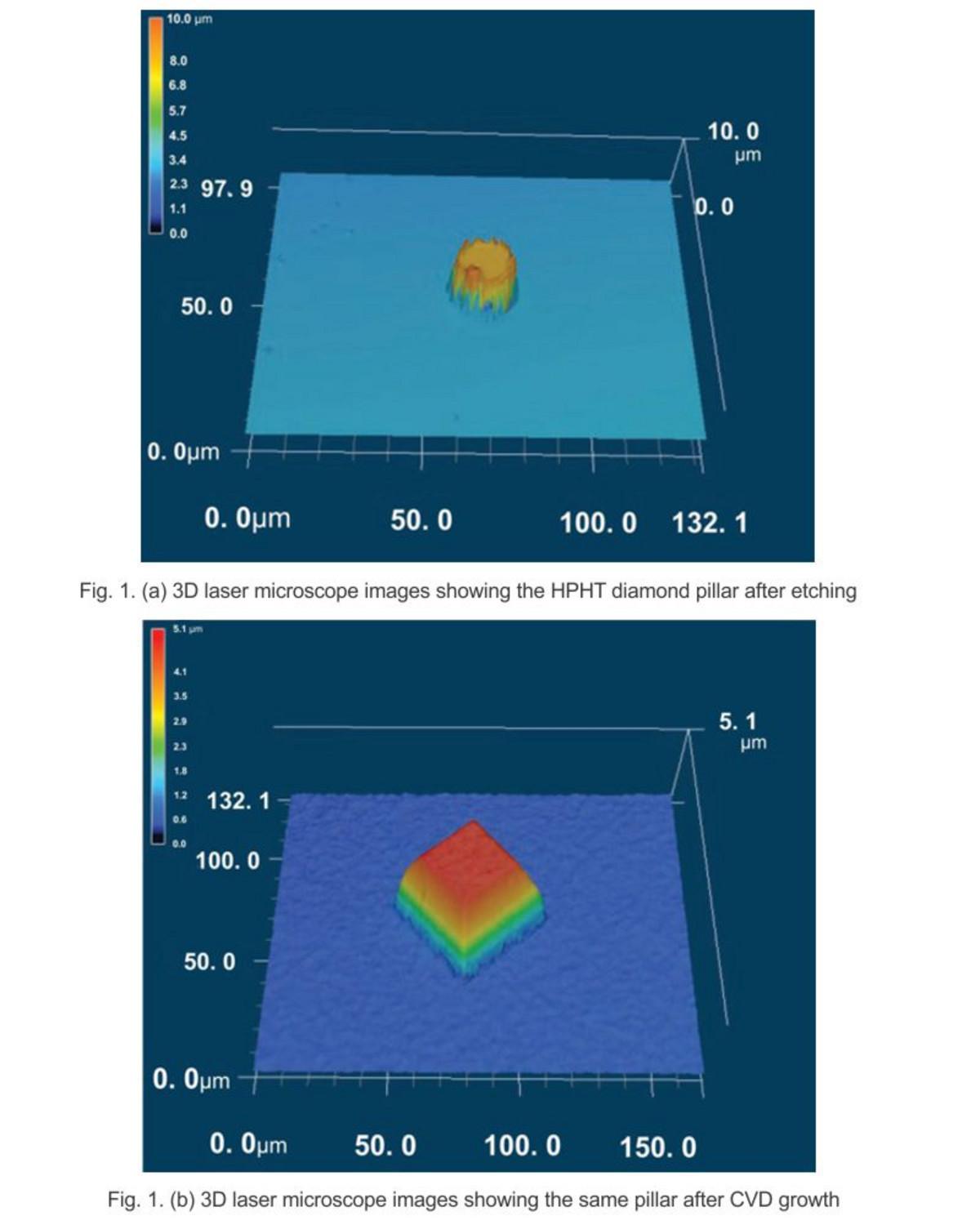

In this work we performed CVD epitaxial growth on a pattern of micro-pillars etched on a diamond substrate. Cathodoluminescence (CL) analysis revealed that NV centres were successfully localized at the edges of the pillars.
Luminescent defects in single crystal diamond are the focus of intense research activities due to a broad range of possible applications in quantum computing, cryptography and magnetometry. Among them, the so called Nitrogen-Vacancy (NV) centre is particularly promising due to exceptionally long spin coherence times at room temperature. The spin state of this defect can also be optically manipulated and read-out which could pave the way to innovative solid-state quantum mechanical systems.
In this context, the Plasma Assisted Chemical Vapour Deposition (PA-CVD) technique has emerged as a very efficient way to directly create such defects during epitaxial growth of diamond. However the creation of a given NV density in a high-purity diamond matrix is still very challenging. Besides, most applications require the defects to be spatially localized in the crystal so that they can be easily addressed and manipulated. In this work we performed CVD epitaxial growth on a pattern of micro-pillars etched on a diamond substrate.
Cathodoluminescence (CL) analysis revealed that Nitrogen-Vacancy centres were successfully spatially localized at the edges of a pyramidal structure made of CVD diamond. Conditions were chosen so that growth only occurred in the lateral direction with almost no vertical growth. NV centres were preferentially incorporated in the lateral sides of the CVD-grown diamond.
The fabrication of diamond microstructures and arrays is believed to pave the way to innovative solid-state quantum mechanical systems making use of the exceptional properties of NV luminescent defects. In that sense cathodoluminescence is a useful tool allowing identifying and localizing such defects and their environment.
Raman Photoluminescence & Cathodoluminescence
Versatile Hyperspectral Cathodoluminescence
Compact Hyperspectral Cathodoluminescence
Fast Imaging Cathodoluminescence
Cathodoluminescence Solutions for Electron Microscopy
Do you have any questions or requests? Use this form to contact our specialists.
